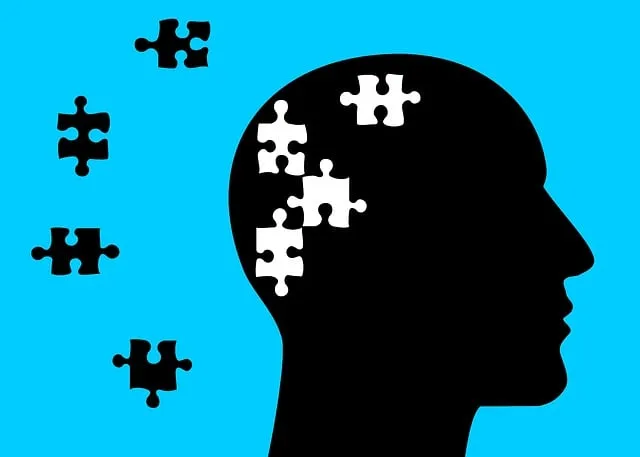The Kaiser Permanente behavioral health center in Colorado Springs emphasizes emotion regulation techniques for improved well-being. They offer stress reduction methods and mood management strategies, including cognitive reframing and cultural sensitivity training, empowering individuals to manage their emotions effectively through evidence-based practices and personalized care.
Emotion regulation is a vital skill, especially in today’s fast-paced world. Understanding and managing our emotions can lead to improved mental well-being and enhanced relationships. This article offers a comprehensive guide to learning effective emotion regulation techniques, focusing on practices proven successful at the Kaiser Permanente Behavioral Health Center in Colorado Springs. We’ll explore various strategies, from behavioral interventions to cognitive techniques, empowering readers with tools to navigate their emotional landscapes with greater ease.
- Understanding Emotion Regulation: A Basic Guide
- Kaiser Permanente's Approach to Teaching Techniques
- Behavioral Health Center: Tools for Daily Life
- Cognitive Strategies for Managing Emotions
- Effective Practice and Personalized Learning Plans
Understanding Emotion Regulation: A Basic Guide

Emotion regulation is a crucial skill that involves understanding and managing our feelings to lead healthier, happier lives. It’s about recognizing when emotions are arising and responding to them in constructive ways, rather than being overwhelmed by them. This process is essential for maintaining mental well-being, especially in stressful situations. At the Kaiser Permanente behavioral health center Colorado Springs, professionals emphasize that learning emotion regulation techniques can empower individuals to navigate life’s challenges more effectively.
Various stress reduction methods and mood management strategies are taught at this facility, focusing on cultivating positive thinking as a core component of emotional resilience. By learning these skills, individuals can transform their reactions to difficult emotions, leading to improved overall mental health.
Kaiser Permanente's Approach to Teaching Techniques

At Kaiser Permanente’s behavioral health center in Colorado Springs, they prioritize teaching effective emotion regulation techniques to both their patients and healthcare providers. Recognizing the vital role that emotional intelligence plays in overall well-being, the center integrates these skills into its comprehensive care model. For healthcare providers, this includes not only burnout prevention strategies but also fostering cultural sensitivity in mental healthcare practice. By promoting cultural competency training, Kaiser Permanente ensures that their staff is equipped to meet the diverse needs of their patient population, enhancing the effectiveness and empathy of their services.
Through interactive workshops and ongoing support, the center empowers individuals to navigate their emotions with greater ease. This approach not only benefits patients but also contributes to a more positive work environment for healthcare providers, preventing burnout and encouraging sustainable mental health practices. By combining evidence-based techniques with a focus on cultural awareness, Kaiser Permanente’s behavioral health center in Colorado Springs is revolutionizing the way emotional regulation is taught and experienced.
Behavioral Health Center: Tools for Daily Life

The Kaiser Permanente behavioral health center in Colorado Springs offers a range of tools and resources designed to aid individuals in managing their emotions on a daily basis. These techniques are particularly valuable for those navigating mental illness or recovering from traumatic experiences, as they provide practical strategies for coping with challenging situations. The center’s expert team offers tailored support, recognizing that every individual has unique emotional needs.
One effective approach is through Trauma Support Services, which include counseling and therapy sessions aimed at helping people process and overcome trauma-related symptoms. Additionally, Mental Illness Stigma Reduction Efforts focus on fostering understanding and empathy within the community, promoting a supportive environment for those struggling with mental health issues. The center also encourages journaling as a powerful Mental Wellness Journaling Exercise Guidance, enabling individuals to reflect on their emotions, track progress, and gain insights into their mental state.
Cognitive Strategies for Managing Emotions

At the Kaiser Permanente behavioral health center Colorado Springs, professionals emphasize cognitive strategies as a cornerstone for emotion regulation techniques teaching. This approach encourages individuals to challenge and reframe negative thought patterns that can escalate emotions. By identifying distorted thinking, people gain a clearer perspective on their feelings, enabling them to manage reactions more effectively. For instance, replacing all-or-nothing thoughts with balanced views can help reduce intense emotions like anger or sadness.
Incorporating cognitive strategies alongside Social Skills Training and Inner Strength Development provides a comprehensive approach to emotional well-being. This method not only equips individuals with tools for managing day-to-day emotions but also offers Crisis Intervention Guidance during more severe situations. Through these techniques, individuals learn to navigate their emotional landscape with resilience, fostering a healthier mental space.
Effective Practice and Personalized Learning Plans

Emotion regulation is a vital skill that empowers individuals to navigate life’s challenges with resilience. By understanding the basics and employing effective techniques, such as those offered by Kaiser Permanente’s Behavioral Health Center in Colorado Springs, people can enhance their emotional well-being. The center’s personalized learning plans, combining cognitive strategies and practical tools, provide a comprehensive approach to mastering emotion regulation. Through these teachings, individuals gain the resources to manage stress, overcome emotional obstacles, and lead more fulfilling lives.






